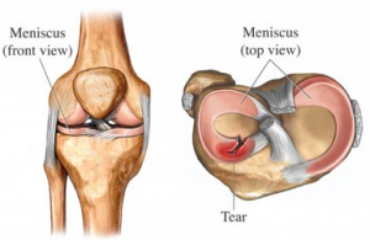The shoulder joint is a ball and socket joint and provides movement in multiple directions. All types of people can incur shoulder injuries that require surgery. Sports-related injuries include a torn rotator cuff. Traumatic falls on the shoulder or dislocation of the joint can also result in a tear that requires surgery or repair.
When is surgery indicated for the dislocated shoulder?
A shoulder dislocation can usually be realigned manually. However, surgery may be required to prevent shoulder instability and future dislocations, In some cases, surgery is recommended right away.
In other cases, surgery is recommended only if shoulder instability persists after nonsurgical treatment.
Although not always clear, surgery may be indicated if patients are unable or unwilling to change their occupation or avoid participating in high-risk sports and they have recurrent dislocations or subluxations. Several studies have suggested arthroscopic or open stabilization procedures after the initial dislocation in lieu of the traditional method of surgical intervention.
Shoulder dislocation recovery time:
Shoulder dislocation surgery recovery time can range from 3–6 months with limited movement of the joint. Full return to rigorous activity, labor or sports, if it happens, can take up to 6–12 months.
People have different recovery rates depending on their overall health before the injury and the steps they take during the healing process. Having said that, there is a basic timeline for shoulder surgery recovery.
For minimally invasive (arthroscopic) procedures, the shoulder surgery recovery time usually looks like:
- Week 1 – The surgical site will be covered in a dressing and the shoulder joint movement is minimized by wearing a sling so that the tissue repairs can begin to heal. The dressing and sutures are removed after a week.
- Weeks 2-6 – Physical therapy begins to help regain range of motion, build strength in the muscles surrounding the joint, and increase flexibility. The sling continues to be worn to limit the full range of shoulder joint movements.
- Week 7 – The sling is usually removed around this time and daily activities are usually restored. There will be some persistent muscle weakness, and athletic activity is not yet recommended. Physical therapy is to continue for another few months to keep building strength and enhancing the range of motion.
- Week 12 – Most of the strength and function is regained by this point. Athletic activity is still not recommended at this point as the tissues continue to heal.
- Months 3 – 6: This is the time to strengthen the muscles in the arm after the relatively long period of inactivity. Light but effective physical therapy slowly strengthens the weakened muscles.
Recommended steps to speed up recovery:
- plenty of rest – this helps in tissue healing.
- eating a healthy diet – this provides the nutrients that help in the recovery process. Eat plenty of probiotics, fiber, and lean protein, as well as a variety of fruits and vegetables. A multi-vitamin ensures your body has the basics of what it needs to recover. Add a B-complex to help you heal, vitamin D to promote muscle and tissue regeneration, and vitamin C and zinc to fight infection. Avoid vitamin A, as it can cause bruising and may reduce the speed of your recovery.
- cold therapy and compression – this is targeted to reduce pain and swelling, and a cryotherapy machine can be used to do them simultaneously.
- quit smoking – Nicotine delays the natural healing ability of your bones and tissues. It also increases your risk of infection. By quitting smoking before your surgery, you heal faster, eliminate risks, and reduce common shoulder surgery complications like frozen shoulder.
- sleeping habits – avoid sleeping on your post-op shoulder. Instead, roll to the other shoulder or try sleeping on your back with pillows supporting you healing shoulder.


